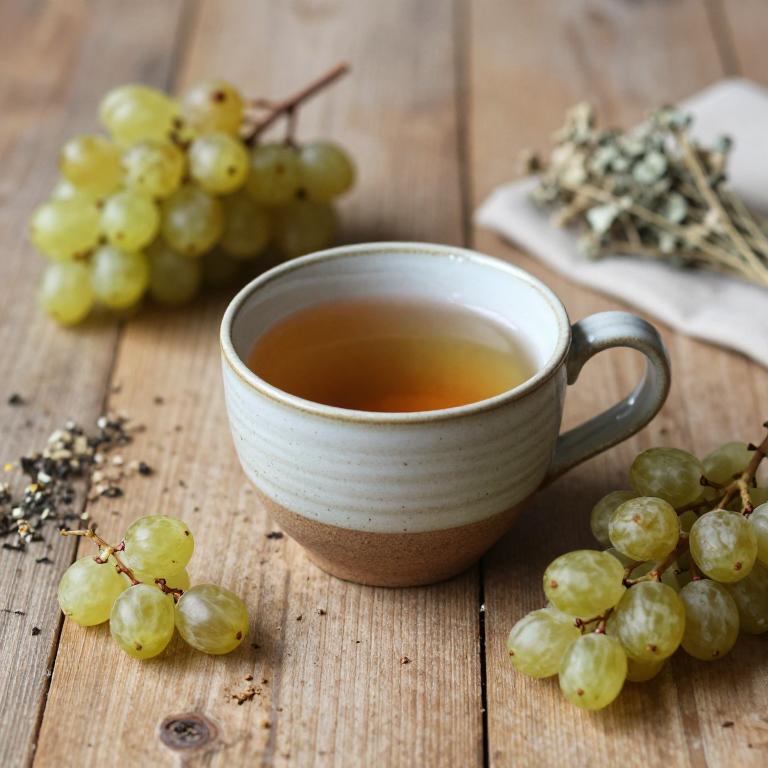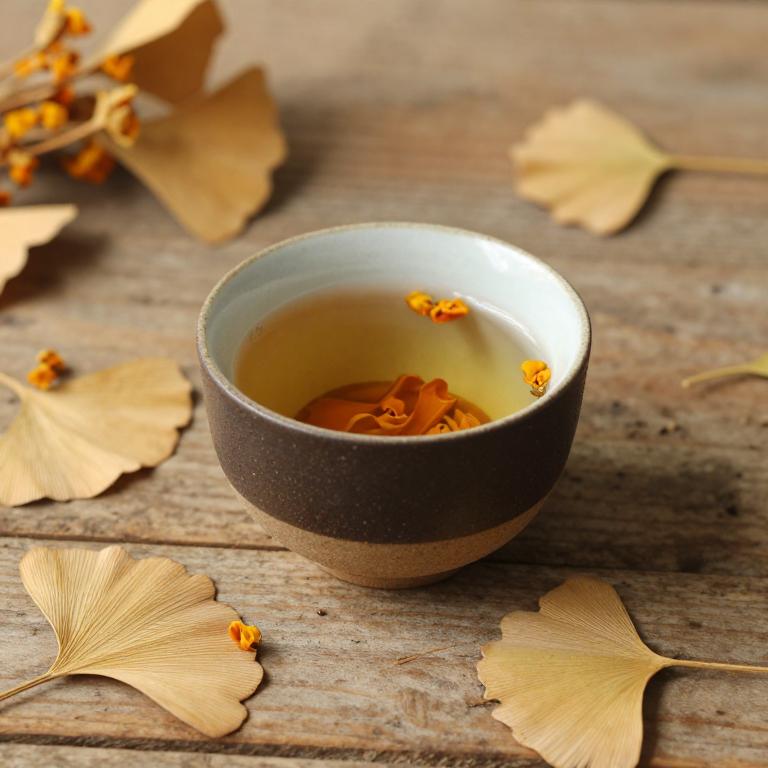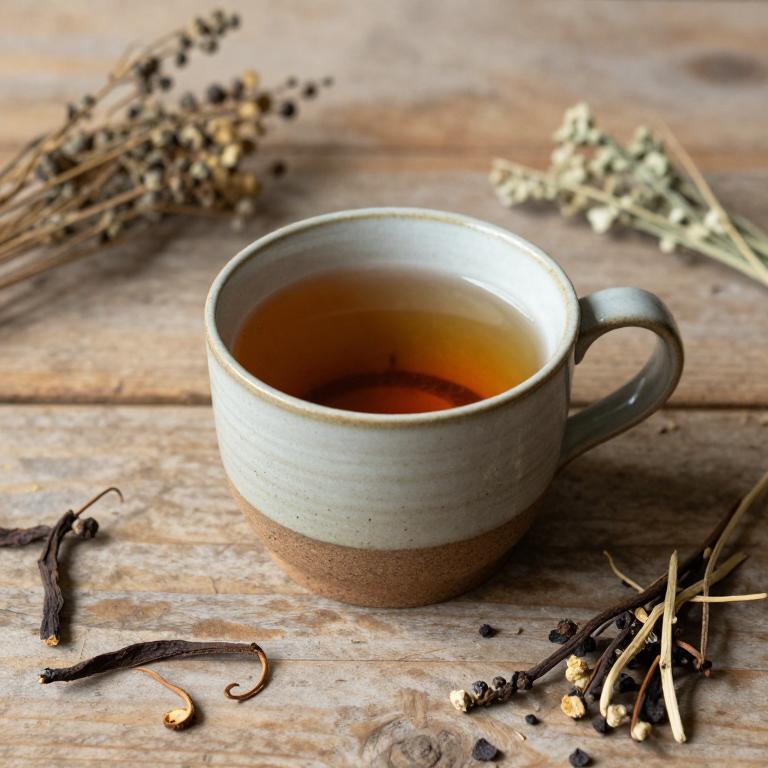10 Best Herbal Teas For Arthritis

Herbal teas have gained popularity as a natural remedy for managing arthritis symptoms, offering a gentler alternative to conventional treatments.
Certain herbs, such as turmeric, ginger, and willow bark, are known for their anti-inflammatory and pain-relieving properties, which can help reduce joint inflammation and stiffness. These teas are typically caffeine-free and can be easily incorporated into a daily wellness routine. However, it is important to consult with a healthcare professional before using herbal teas, especially if you are taking other medications or have underlying health conditions.
While they may provide relief, herbal teas should not replace prescribed treatments without medical guidance.
Table of Contents
- 1. Turmeric (Curcuma longa)
- 2. Ginger (Zingiber officinale)
- 3. Salvia (Salvia officinalis)
- 4. Common grape (Vitis vinifera)
- 5. Stinging nettle (Urtica dioica)
- 6. Field horsetail (Equisetum arvense)
- 7. Echinacea (Echinacea purpurea)
- 8. Ginkgo (Ginkgo biloba)
- 9. Cancer bush (Sutherlandia frutescens)
- 10. Dog rose (Rosa canina)
1. Turmeric (Curcuma longa)

Curcuma longa, commonly known as turmeric, has been widely used in herbal teas for its potential anti-inflammatory and antioxidant properties, which may offer relief for arthritis symptoms.
The active compound in turmeric, curcumin, is believed to reduce inflammation and oxidative stress, both of which are linked to joint pain and degeneration. When brewed into a tea, curcuma longa can be a soothing and natural remedy for individuals seeking alternative treatments for arthritis. However, it is often recommended to combine turmeric with black pepper to enhance the absorption of curcumin in the body.
While herbal teas made from curcuma longa may provide some benefits, they should not replace professional medical advice or treatment for arthritis.
2. Ginger (Zingiber officinale)

Zingiber officinale, commonly known as ginger, has been widely used in herbal teas to alleviate symptoms of arthritis due to its anti-inflammatory and analgesic properties.
The active compounds in ginger, such as gingerol and shogaol, help reduce inflammation and pain in the joints, making it a popular natural remedy for conditions like osteoarthritis and rheumatoid arthritis. Drinking ginger tea regularly may support joint health by improving circulation and reducing oxidative stress in the body. Many individuals find that incorporating ginger into their daily routine through herbal tea helps manage arthritis symptoms without the side effects associated with pharmaceutical treatments.
Overall, zingiber officinale herbal tea offers a soothing and potentially effective complementary approach to arthritis management.
3. Salvia (Salvia officinalis)

Salvia officinalis, commonly known as sage, has been traditionally used in herbal teas to support joint health and alleviate arthritis symptoms.
The plant contains compounds such as rosmarinic acid and flavonoids, which possess anti-inflammatory and antioxidant properties that may help reduce swelling and pain in arthritic joints. Drinking sage tea regularly may promote overall joint function and comfort, though it is often recommended to combine it with other natural remedies for optimal results. While scientific research on its effectiveness for arthritis is still emerging, many individuals report positive effects from incorporating sage into their wellness routine.
As with any herbal remedy, it is advisable to consult a healthcare professional before using sage tea, especially for those with existing medical conditions or taking medications.
4. Common grape (Vitis vinifera)

Vitis vinifera, commonly known as the grape vine, is the source of several herbal teas that are traditionally used for their potential health benefits, including relief from arthritis symptoms.
These teas, often made from the leaves, seeds, or berries of the vine, contain compounds like resveratrol and flavonoids, which are believed to have anti-inflammatory and antioxidant properties. Some studies suggest that regular consumption of Vitis vinifera herbal tea may help reduce joint pain and stiffness associated with arthritis by modulating inflammatory responses in the body. While more research is needed to confirm these effects, many individuals find comfort in using these natural remedies as part of a holistic approach to managing arthritis.
As with any herbal remedy, it is advisable to consult with a healthcare provider before incorporating Vitis vinifera tea into one's wellness routine.
5. Stinging nettle (Urtica dioica)

Urtica dioica, commonly known as stinging nettle, is a herbal remedy that has been traditionally used to support joint health and alleviate symptoms of arthritis.
When prepared as a tea, it is believed to provide anti-inflammatory and analgesic benefits due to its rich content of antioxidants, minerals, and bioactive compounds. The leaves of the plant contain compounds such as flavonoids and polyphenols, which may help reduce inflammation and oxidative stress in the body. While some studies suggest that nettle tea may offer relief for arthritis-related pain and stiffness, it is often recommended to be used in conjunction with conventional treatments under medical supervision.
As with any herbal remedy, it is important to consult a healthcare professional before incorporating urtica dioica tea into a treatment plan for arthritis.
6. Field horsetail (Equisetum arvense)

Equisetum arvense, commonly known as field horsetail, has been traditionally used in herbal medicine for its potential anti-inflammatory properties.
When brewed into a tea, it may help alleviate joint pain and reduce inflammation associated with arthritis due to its high silica content and other bioactive compounds. However, it is important to note that while some studies suggest possible benefits, scientific evidence supporting its efficacy for arthritis remains limited. As with any herbal remedy, it should be used with caution and under the guidance of a healthcare professional, especially for those with existing health conditions or taking medications.
Overall, equisetum arvense herbal tea may offer a complementary approach to managing arthritis symptoms, but it should not replace conventional treatments.
7. Echinacea (Echinacea purpurea)

Echinacea purpurea, commonly known as purple coneflower, is a popular herbal remedy often used in teas to support immune function and reduce inflammation.
While it is traditionally associated with colds and respiratory health, some studies suggest that echinacea may have anti-inflammatory properties that could benefit individuals with arthritis. Herbal teas made from echinacea are typically prepared by steeping dried flowers and leaves in hot water, resulting in a mild, earthy flavored beverage. However, it is important to note that echinacea may not be effective for all types of arthritis and should be used as a complementary therapy rather than a replacement for conventional treatments.
As with any herbal remedy, it is advisable to consult a healthcare professional before incorporating echinacea into an arthritis management plan.
8. Ginkgo (Ginkgo biloba)

Ginkgo biloba herbal tea is often used as a natural remedy for arthritis due to its potential anti-inflammatory and antioxidant properties.
The tea is made from the leaves of the ginkgo tree, which has been historically used in traditional medicine for its cognitive and circulatory benefits. Some studies suggest that ginkgo biloba may help reduce inflammation and improve blood flow, which could alleviate joint pain and stiffness associated with arthritis. However, more research is needed to fully understand its effectiveness and safety for long-term use in arthritis management.
As with any herbal remedy, it is advisable to consult a healthcare professional before incorporating ginkgo biloba tea into a treatment plan for arthritis.
9. Cancer bush (Sutherlandia frutescens)

Sutherlandia frutescens, commonly known as cancer bush, is a traditional South African plant that has been used in herbal medicine for various ailments, including arthritis.
This herb is often brewed into a tea and is believed to possess anti-inflammatory and pain-relieving properties that may help alleviate symptoms of arthritis. While some studies suggest that it may support immune function and reduce oxidative stress, more research is needed to confirm its efficacy for arthritis specifically. Many people use sutherlandia frutescens tea as a complementary therapy alongside conventional treatments for arthritis.
As with any herbal remedy, it is important to consult with a healthcare professional before incorporating it into your health regimen.
10. Dog rose (Rosa canina)

Rosa canina, commonly known as rose hip, is a popular herbal ingredient used in teas to support joint health and alleviate arthritis symptoms.
The tea is rich in bioactive compounds such as antioxidants, flavonoids, and essential oils, which help reduce inflammation and oxidative stress in the body. Studies suggest that regular consumption of rose hip tea may improve joint mobility and decrease pain in individuals with osteoarthritis and rheumatoid arthritis. Its natural anti-inflammatory properties make it a gentle alternative to conventional pain medications, though it should be used as part of a comprehensive treatment plan.
When brewed properly, rose hip tea offers a soothing, flavorful drink that promotes overall wellness and supports the body’s natural healing processes.